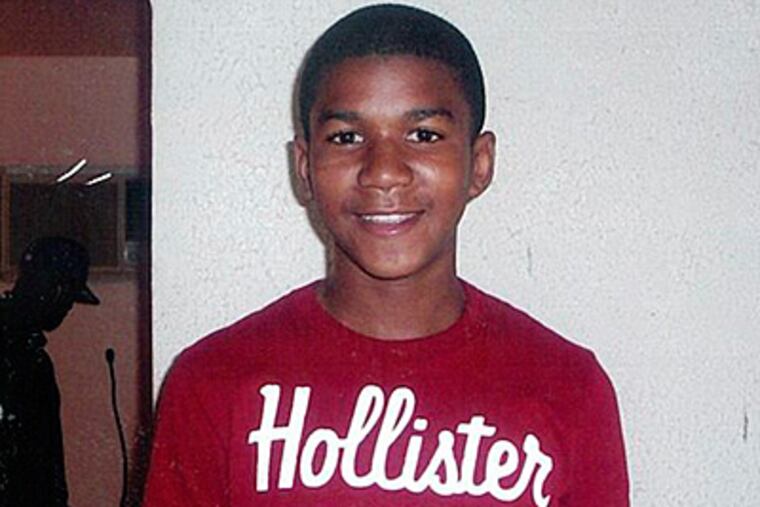Elmer Smith: Law tilted against slain Fla. teen
A FTER WEEKS of agitation by an outraged community, the U.S. Justice Department and a Florida prosecutor are finally asking why a town-watch volunteer gunned down a kid armed with nothing more than a soft drink and a bag of Skittles.

AFTER WEEKS of agitation by an outraged community, the U.S. Justice Department and a Florida prosecutor are finally asking why a town-watch volunteer gunned down a kid armed with nothing more than a soft drink and a bag of Skittles.
The question before them is whether George Zimmerman was simply exercising his right of self-defense under Florida's expansive "Stand Your Ground Law" when he shot and killed Trayvon Martin, 17, on Feb. 26 in a neighborhood that Zimmerman patrolled.
What they won't be considering is whether Trayvon Martin had the right to stand his ground. Because in Florida, Pennsylvania and 25 other states that have enacted these "shoot-first-and-ask-questions-later" laws, "justice" sides with the last man standing.
In fact, Florida's law and the Castle Doctrine law that Pennsylvania's Gov. Corbett signed in July make it all but impossible to pursue criminal or civil cases against people who use deadly force in self-defense. Both laws allow a person who feels threatened in his home or place of work or car to shoot and kill without the need to retreat.
The impact of the Florida law was as swift as it was predictable. Since it was passed in 2005, the number of "justified" shooting deaths has tripled in Florida, according to a 2010 review by the St. Petersburg Times.
The Times' investigation revealed that charges were brought in only eight of the 65 shooting deaths in which Florida's self-defense law was cited. All but one ended in acquittals.
So George Zimmerman has as much to fear from these investigations as he did from the unarmed kid he shot down on that rainy night in Sanford, Fla.
But the show must go on.
The U.S. Justice Department's role in this unfolding morality play will be to determine whether Zimmerman was guilty of a hate crime. While the feds are engaged in this pointless pursuit, county prosecutors will convene a grand jury on April 10 to decide whether to haul him up on homicide charges.
I don't believe there is a court in America that can say with certainty that Zimmerman was motivated by race hatred. Nor can the Justice Department meet the ridiculously rigorous legal standard to prove that he specifically intended to deprive Martin of his civil rights.
I've never been a fan of hate- crime laws. Why ask a jury to probe a defendant's psyche? If he did it, he should be punished, whether he's a racist or just a garden-variety criminal.
But there is a race angle in this story. I can't help wondering which way the wheels of justice would be turning if Martin had fired first. Where do you think he would be now if they had wrestled over the gun and Zimmerman had been killed in the struggle?
Would the most permissive self-defense law in America have been wide enough to cover an unarmed 17-year-old black kid in a hoodie who was walking through a predominantly white neighborhood at night?
I doubt it. The story would have been about how a pillar of his community was killed in action as he was standing sentinel in a neighborhood that had been repeatedly victimized by kids like this. Who was this kid? What was he doing there?
Trayvon Martin would be facing homicide charges in a state that has the most-used death chamber in America.
Check the list of those people who have left Florida's death house in boxes. You will find more Trayvon Martins than George Zimmermans.
Would justice have sided with the last man standing if he had been a black kid in a predominantly white neighborhood and he was standing over the body of a respected figure in the community?
What do you think?